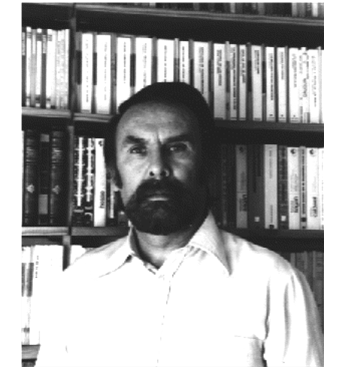Manuel Álvarez Ortega was born in Córdoba, Spain, on 3 March 1923, there he studied and worked as a dramatist and took part in radio broadcasting. He also studied and graduated in Veterinary Science in 1949. At that time, he founded and edited the literary review Aglae between 1949 and 1953, one of the most beautiful poetic magazines of Post-War Spanish Poetry period, that presented the Modern French Poetry. He also is well known by his translations and selections on French Poetry, not only anthologies such as Poesía francesa contemporánea (1967), Poesía simbolista francesa (1975) or his recently Veinte poetas franceses del siglo veinte (2002), but also his translations into Spanish of poets such as André Breton, Saint-John Perse, Lautréamont, Guillaume Apollinaire, Patrice de la Tour du Pin, Jules Laforgue, Paul Eluard, Alfred Jarry, Victor Segalen, O. V. de L. Milosz among others.
Considered a teacher by the young poetic generations like “The Seventy” Generation or “Novísimos”, his poetical works are an inestimable value that unifies Life and Poetry, because he creates a new form of poetry by using beautiful and unusual imagery; he develops themes around the existential situation of exile and death, drawing up motifs based on the importance of Art and Poetry, according the criteria of Rilke, for this reason some literary critics called him the “Spanish Rilke”. He also increased the use of new stresses, rhythms and meters that enriched the Spanish verse, and perhaps his great talent remains in the musicality of language and copious living metaphors.
His first books were La huella de las cosas (1948)(The Track of the Things) and Egloga de un tiempo perdido (1950) (Eclogue of a Lost Time), but he consecrated in 1950 with Clamor de todo espacio (Outcry of all Space) and Hombre de otro tiempo( Man of Other Time). Then, some works followed like Tenebrae (1951) that gave a revitalizing poetry of imagination next to Surrealism movement and, above all, Exilio (1953) (Exile), which was granted unfairly with Second Prize Adonais. Other poetic works of this period are Dios de un día (1954) (God of a Day) , Tiempo en el Sur (1955) (Time in the South), and, mainly, Despedida en el tiempo (1955) ( Farewell to the Time). He will reach a crucial moment with Sea la sombra (1960) (Be the Shade) and Invención de la muerte (1960) (Invention of the Death) by the use of a dialectic imaginery and beautiful metaphors. Then it would come: Lilia Culpa (1962), Oscura marea (1963) (Dark Tide), and the nostalgic Oficio de los días (1965) (Service of the days).
Brilliant poetical works such as Reino memorable (1966) (Memorable Kingdom) and Génesis (1967) dealt with Metaphysical restlessness, while he will return to the obsession of the Time past gone and Memory against Oblivion in Fiel, infiel (1968) (Unfaithful Faithful), Carpe Diem (1969), Codigo (1970) and Aquarium (1970).
Aside from Fabula (1973) (Fable) that displays an ironic vision of modern world reality, he will turn back to his worries on human fate in Desde otra edad (1974) (From other Age) and Mantia Fidelis (1975). The decay of being and the metaphysical fight between life and death are developed in Escrito en el Sur (1978) (Writing in the South), Templo de mortalidad (1980) (Temple of Mortality) and Liturgia (1981) (Liturgy). Then, it will come one of the highest poetic summit in our contemporary poetry: Gesta (1983) (Exploit). After that, he will publish Claustro de un día (1984) (Cloister of the Day) and Corpora Terrae (1987). Some poems of the poetic work Gesta were translated into English by Louis Bourne and were published under the title Poemas /Poems (2002)in Antelia Collection directed by Margarita Prieto, while his esthetics and poetic reflections have appeared in their work Intratexto (1997). His second poetic anthology brought out in May 2004,Despedida en el tiempo. (1941-2001), poems selected by Marcos-Ricardo Barnatán who also introduced the first one in 1972.
In March 2005 he brought out Visitación, a metaphysical elegy, and in December 2006 it appeared Obra poética (1941-2005), which brings together his complete poetic work in two volumes, believed one of the sublime poetry of the Modern European and Spanish Literature, it assumes tradition and avant-garde.
Manuel Alvarez Ortega was granted with the National Prize of Translation in 1967, the City of Irun’s Poetic Prize in 1978, the First Poetic World Prize set up by Rielo Foundation, and recently Diputación de Córdoba awarded him with the “Premio de las Letras Córdoba 1999”. He is also member of the Royal Academy of Córdoba from 1969 and has been nominated to the Nobel Prize of Literature several times.

